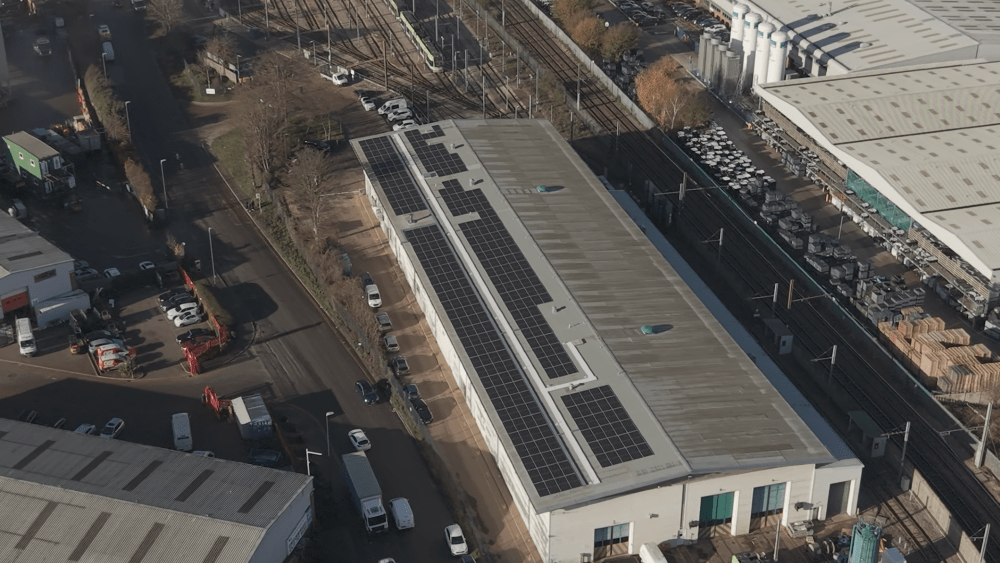The Climate Change Committee (CCC) has released its first assessment of the new Government’s progress on reducing emissions.
The independent statutory body found the the UK Government’s policies to reduce emissions have improved since last year. But with more action, the UK can also hit its legally binding climate targets and improve energy security for households and businesses across the UK.
Its top findings include making electricity cheaper so people can feel the benefits of the transition, which will also speed up the uptake of clean energy technologies, including electric vehicles (EV) and heat pumps.
It also said there had been “positive delivery” in key areas this year, including the share of EVs improving to almost 20% of the market, heat pump installations up by 56% and woodland creation up 59%.
This was mainly due to policies set out by the previous administration – although it said the current UK Government had made “bold policy decisions” this year, including removing planning barriers to renewables deployment, clean power, and the 2030 phase-out date for new ICE vehicles.
Yet it said more action was needed as despite growth EV and heat pump rollouts were slightly below what is needed, so “action must accelerate”, it said.
Overall, emissions fell 2.5% in 2024, the tenth consecutive year of sustained reduction in emissions, excluding the COVID-19 pandemic years 2020 and 2021. The UK’s emissions have halved (-50.4%) since 1990.
Priority recommendations in the report are:
- Make electricity cheaper.
- Provide confidence and certainty to scale heat pump deployment in existing buildings.
- Implement regulations to ensure that new homes are not connected to the gas grid.
- Introduce a comprehensive programme to decarbonise public sector buildings.
- Accelerate the electrification of industrial heat.
- Effectively deliver rapid expansion of the low-carbon electricity system.
- Put policies and incentives in place to ramp up tree planting and peatland restoration.
- Develop policy to ensure that the aviation industry takes responsibility for its emissions reaching Net Zero by 2050.
- Finalise business models for engineered removals.
- Publish a strategy to support skills.
Read the Committee’s report on progress in reducing emissions here.
Interim Chair of the Climate Change Committee, Professor Piers Forster, said:
“The UK can be proud of our progress in reducing emissions. We’ve cut them by over 50% since 1990. Our country is among a leading group of economies demonstrating a commitment to decarbonise society. This is to be celebrated: delivering deep emissions reduction is the only way to slow global warming.
“However, the Government needs to do more to ensure people see the benefits of climate action in their bills. Given increasingly unstable geopolitics, it is also important to get off unreliable fossil fuels and onto homegrown, renewable energy as quickly as possible.
“The fossil fuel era is over – cheap, clean electricity is our future.”
Responding to the report, Trevor Hutchings, Chief Executive at REA, said:
“Climate changing emissions have halved since 1990 and over 50% of our electricity is now from clean sources. Electric vehicle sales are up a fifth and heat pump installations have grown by over a third year on year – net zero is within our grasp.
“But this important report reminds us that we are still far from job done. As we electrify, we must further incentivise the production of clean, renewable energy to meet the new demand; we must address gaps in policy coverage; and we must ensure consumers quickly feel the full ‘net zero dividend’ through lower electricity bills.”
Nigel Pocklington, chief executive, Good Energy said:
“The government has just announced it plans to cut energy costs for businesses in high energy use industries by making them exempt from paying certain levies. The fairer approach would be to do the same for everyone including households.
“Following the Climate Change Committee’s advice in moving these policy costs into general taxation would be a bold and fair triple win for climate and this government. There they would be levied more fairly, whilst heating a home with a heat pump would become significantly cheaper than gas and energy bills would be lower for all.”
Caroline Bragg, CEO of the ADE, said:
“While we applaud the progress on emissions and bold steps on clean power, the CCC report exposes a glaring hole in plans for low-carbon heating. The Government must apply the same laser focus given to heat pumps to all low-carbon solutions, especially heat networks.
“The total absence of a plan for industrial sites outside clusters is equally alarming. Ministers must go further: commit to Clean Heat by 2040, slash electricity costs now and unlock investment. Demand flexibility – vital for grid stability and lower bills – can’t remain sidelined. The diagnosis is clear, now we quickly need the cure.”
Yselkla Farmer, CEO of BEAMA, said:
“Low carbon solutions must be more cost effective for mass consumer uptake. The message from the Climate Change Committee could not be clearer but also has been heard before.
“The Government must act now to bring about systemic change for the electrification of the UK’s economy if emissions targets are to be met. The decisiveness of the Clean Energy Industries Sector Plan within the Industrial Strategy now needs to be mirrored in the separation of wholesale gas costs from electricity prices.
“BEAMA members are poised at this defining moment for the electrification of heat and transport to invest in the UK and bring about continued growth for the green economy.
“The upcoming Warm Homes plan must show consumers that their desire to make clean energy decisions will be supported by a competitive, fair market that normalises a full range of low-carbon heating technologies, including heat pumps.”
Image from Shutterstock












